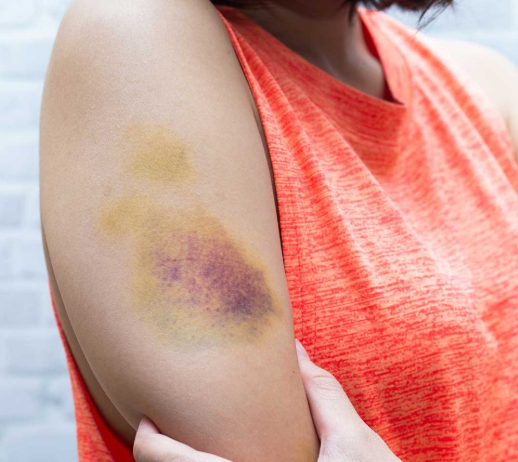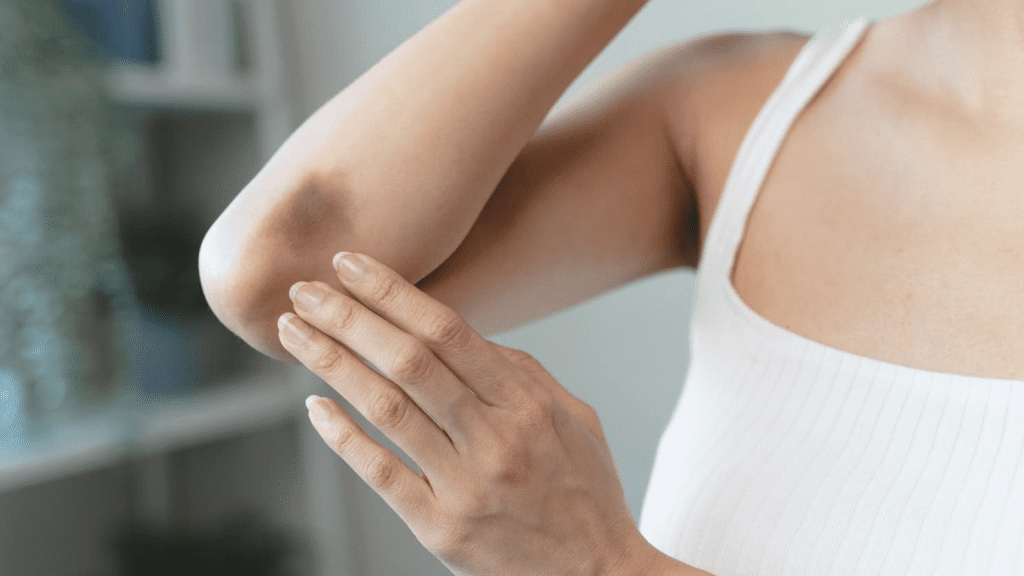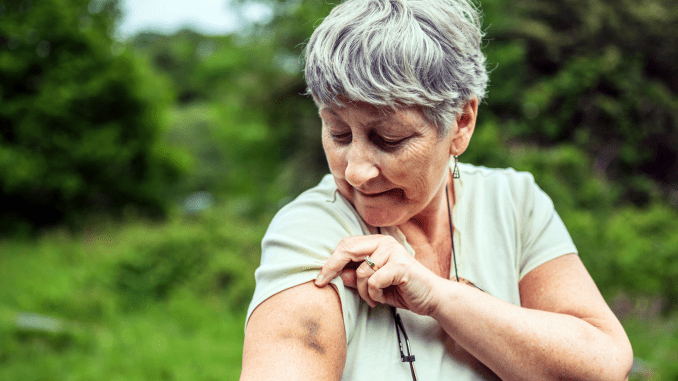Have you ever wondered why a small bump leaves some people with a noticeable bruise while others barely show a mark? Bruising is a natural response when tiny blood vessels under the skin, known as capillaries, break and leak blood into the surrounding tissues. This process creates those familiar black, blue, or purple marks. While bruises are usually harmless, they can sometimes signal something deeper about your health. Let’s explore the top reasons behind easy bruising and what they might reveal about your body.
What Causes a Bruise? The Science Behind the Discoloration

When trauma or impact occurs, capillaries under your skin rupture, releasing blood into the surrounding tissues. Over time, your body reabsorbs the blood, causing the bruise to change color—from blue and purple to green, yellow, and finally fading away. While bruising is a normal healing process, the ease and frequency with which someone bruises can vary widely. Let’s break down the reasons behind this difference.
1. Genetics: A Built-In Predisposition to Bruising
If you bruise easily, your DNA might be the culprit. Some people inherit thinner skin or weaker blood vessels, which make their capillaries more prone to breaking under minimal pressure. Genetic conditions like Ehlers-Danlos syndrome, which affects connective tissues, can also lead to frequent bruising. If easy bruising runs in your family, it’s likely that genetics play a significant role in your body’s response to minor injuries.
2. Aging: The Natural Changes in Skin and Vessels
As we age, our skin becomes thinner and less elastic, losing the protective fatty layer that cushions blood vessels from minor trauma. On top of that, collagen production decreases, weakening the structure of both the skin and blood vessels. These natural changes make older adults more susceptible to bruising, even from small bumps that younger individuals might not notice.
3. Medications: A Key Factor in Bruising Vulnerability
Certain medications can make you more prone to bruising by thinning your blood or weakening blood vessel walls. Blood thinners such as aspirin and warfarin, often prescribed to prevent clots, can result in larger or more frequent bruises. Steroids, whether taken orally or applied topically, can also make the skin and blood vessels more fragile. Even over-the-counter pain relievers like ibuprofen can interfere with blood clotting, increasing your risk of noticeable bruises.
4. Nutritional Deficiencies: The Hidden Trigger
Your diet can have a surprising impact on how easily you bruise. Deficiencies in essential nutrients like vitamin C, vitamin K, and iron are common culprits. Vitamin C plays a crucial role in collagen production, which strengthens blood vessels, while vitamin K is essential for blood clotting. A lack of these vitamins can leave your capillaries vulnerable to damage. Similarly, low iron levels can lead to weaker blood vessels and poor healing, making bruising more frequent and visible.
5. Undiagnosed Medical Conditions
In some cases, easy bruising may indicate an underlying medical issue. Blood disorders such as hemophilia or von Willebrand disease impair the blood’s ability to clot properly, resulting in frequent bruises. Liver diseases can also affect clotting factors, leading to increased susceptibility to bruising. More serious conditions like leukemia, which disrupts normal blood cell production, can cause unexplained bruises. If you experience frequent or unexplained bruising alongside symptoms like fatigue, prolonged bleeding, or frequent infections, it’s important to consult a doctor.
6. Hormonal Changes: The Impact of Shifting Hormones

Hormonal fluctuations, especially in women, can contribute to easier bruising. Birth control pills and hormone replacement therapy can thin the skin and weaken blood vessels, increasing the likelihood of bruises. During menopause, the natural decline in estrogen levels can lead to reduced skin thickness and elasticity, making bruises more common as women age.
7. Environmental Factors: External Causes of Fragile Skin
Environmental factors can also play a role in how easily you bruise. Prolonged sun exposure weakens the skin over time, making it more vulnerable to damage. Exposure to certain chemicals or pollutants can harm the integrity of blood vessels, leaving you more prone to bruising. Protecting your skin from environmental stressors can go a long way in reducing the frequency and severity of bruises.
8. Lifestyle Choices: How Habits Influence Bruising
Your lifestyle choices can significantly impact your susceptibility to bruising. Smoking, for example, damages collagen and reduces blood circulation, weakening both your skin and blood vessels. Heavy alcohol consumption affects liver function and blood clotting, which can result in more pronounced bruising. Even a sedentary lifestyle can slow circulation and prolong the healing process, making bruises linger longer than they should.
9. Dehydration: An Unexpected Factor
Dehydration might not be the first thing that comes to mind when you think about bruising, but it plays an important role. When your body lacks adequate hydration, your skin becomes less elastic and more prone to damage. Proper hydration supports healthy, resilient skin, reducing your likelihood of bruising easily.
10. Knowing When to Seek Medical Attention

While occasional bruising is normal, frequent or unexplained bruises can be a cause for concern. If you notice large bruises appearing without any known trauma, bruises that take an unusually long time to heal, or additional symptoms like bleeding gums, dizziness, or extreme fatigue, it’s essential to seek medical advice. These signs could point to an underlying health condition that requires prompt attention.
How to Prevent Easy Bruising
If you’re prone to bruising, there are steps you can take to minimize your risk. Maintain a nutrient-rich diet that includes plenty of vitamin C, vitamin K, and iron to support blood vessel health and proper clotting. Protect your skin by wearing sunscreen to prevent sun damage and using protective clothing when engaging in activities that might cause bumps or scrapes. Staying hydrated and adopting healthy lifestyle habits, such as regular exercise and quitting smoking, can also improve your skin’s resilience.
Conclusion: What Your Bruising Says About Your Health
Bruising is often harmless, but it can offer valuable insights into your overall health. From genetic predispositions and aging to lifestyle habits and medical conditions, the reasons behind easy bruising are varied and multifaceted. Understanding these factors can help you take proactive steps to support your skin and blood vessel health.
If bruising continues to be a concern, don’t hesitate to consult a healthcare provider. They can help identify any underlying issues and recommend solutions tailored to your needs. By paying attention to what your body is telling you, you can take control of your health and keep your skin strong and resilient for years to come.


